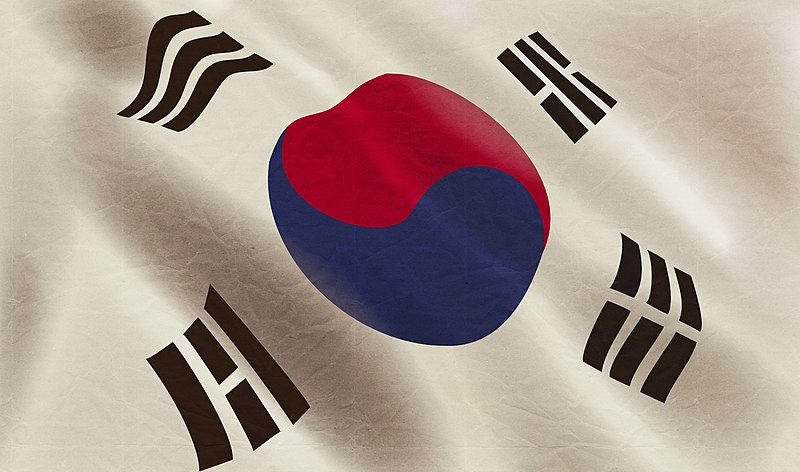The South Korean government introduced a strategy this week that would compensate those who are victims of Japan’s wartime forced labor. The compensation would come from its own public foundation, prompting criticism from the families of the victims.
The South Korean foreign ministry unveiled the plan during a public hearing on Thursday, which would see victims of Japan’s forced wartime labor compensated through its public foundation instead of funds from Japanese companies. The foundation would be funded by businesses that benefited from a 1965 treaty where South Korea received a package of $300 million in economic aid and $500 million in loans from Japan.
The Foundation for Victims of Forced Mobilization by Imperial Japan said it was able to secure initial donations from steelmaker company POSCO that totaled $3.2 million.
“We’ve reviewed that it is possible for a third party to make payment as legal bonds on behalf of the defendant Japanese company,” said the ministry’s Asia-Pacific affairs director-general Seo Min-jung, adding that a “creative approach” was needed.
Back in 2018, the South Korean Supreme Court ordered Japanese companies to pay reparations to former forced laborers. While 15 South Koreans won such cases, none of them have been compensated. The spokesperson for the Foundation, Shim Su-kyun, said he intends to encourage South Korean firms to donate “from the perspective of social responsibility.”
The unresolved legacy of Japan’s occupation of Korea from 1910-1945 has long been a source of strain in the relations between South Korea and Japan. This included restitution for Koreans that were forced to work in Japanese companies and military brothels at the time of the occupation.
On Wednesday, South Korean defense minister Lee Jong-sup told reporters during a news conference that South Korea and the United States are set to hold tabletop exercises in February in an effort by the allies to counter the rising threat from North Korea. Officials in Seoul and Washington said they were having discussions to improve joint nuclear planning and implementation, as well as boosting information sharing and holding tabletop drills, but the timeline had yet to be finalized.
“We’re planning to hold tabletop exercises in February between defense officials on operating means of extended deterrence under the scenario of North Korea’s nuclear attacks,” said Lee.



 Jack Lang Resigns as Head of Arab World Institute Amid Epstein Controversy
Jack Lang Resigns as Head of Arab World Institute Amid Epstein Controversy  U.S. to Begin Paying UN Dues as Financial Crisis Spurs Push for Reforms
U.S. to Begin Paying UN Dues as Financial Crisis Spurs Push for Reforms  New York Legalizes Medical Aid in Dying for Terminally Ill Patients
New York Legalizes Medical Aid in Dying for Terminally Ill Patients  Iran–U.S. Nuclear Talks in Oman Face Major Hurdles Amid Rising Regional Tensions
Iran–U.S. Nuclear Talks in Oman Face Major Hurdles Amid Rising Regional Tensions  Trump Signs Executive Order Threatening 25% Tariffs on Countries Trading With Iran
Trump Signs Executive Order Threatening 25% Tariffs on Countries Trading With Iran  US Pushes Ukraine-Russia Peace Talks Before Summer Amid Escalating Attacks
US Pushes Ukraine-Russia Peace Talks Before Summer Amid Escalating Attacks  Trump Backs Nexstar–Tegna Merger Amid Shifting U.S. Media Landscape
Trump Backs Nexstar–Tegna Merger Amid Shifting U.S. Media Landscape  Netanyahu to Meet Trump in Washington as Iran Nuclear Talks Intensify
Netanyahu to Meet Trump in Washington as Iran Nuclear Talks Intensify  Missouri Judge Dismisses Lawsuit Challenging Starbucks’ Diversity and Inclusion Policies
Missouri Judge Dismisses Lawsuit Challenging Starbucks’ Diversity and Inclusion Policies  Trump Allegedly Sought Airport, Penn Station Renaming in Exchange for Hudson River Tunnel Funding
Trump Allegedly Sought Airport, Penn Station Renaming in Exchange for Hudson River Tunnel Funding  Trump Signs “America First Arms Transfer Strategy” to Prioritize U.S. Weapons Sales
Trump Signs “America First Arms Transfer Strategy” to Prioritize U.S. Weapons Sales  China Warns US Arms Sales to Taiwan Could Disrupt Trump’s Planned Visit
China Warns US Arms Sales to Taiwan Could Disrupt Trump’s Planned Visit  Ohio Man Indicted for Alleged Threat Against Vice President JD Vance, Faces Additional Federal Charges
Ohio Man Indicted for Alleged Threat Against Vice President JD Vance, Faces Additional Federal Charges  TrumpRx.gov Highlights GLP-1 Drug Discounts but Offers Limited Savings for Most Americans
TrumpRx.gov Highlights GLP-1 Drug Discounts but Offers Limited Savings for Most Americans  U.S. Announces Additional $6 Million in Humanitarian Aid to Cuba Amid Oil Sanctions and Fuel Shortages
U.S. Announces Additional $6 Million in Humanitarian Aid to Cuba Amid Oil Sanctions and Fuel Shortages  Nighttime Shelling Causes Serious Damage in Russia’s Belgorod Region Near Ukraine Border
Nighttime Shelling Causes Serious Damage in Russia’s Belgorod Region Near Ukraine Border  Pentagon Ends Military Education Programs With Harvard University
Pentagon Ends Military Education Programs With Harvard University 































